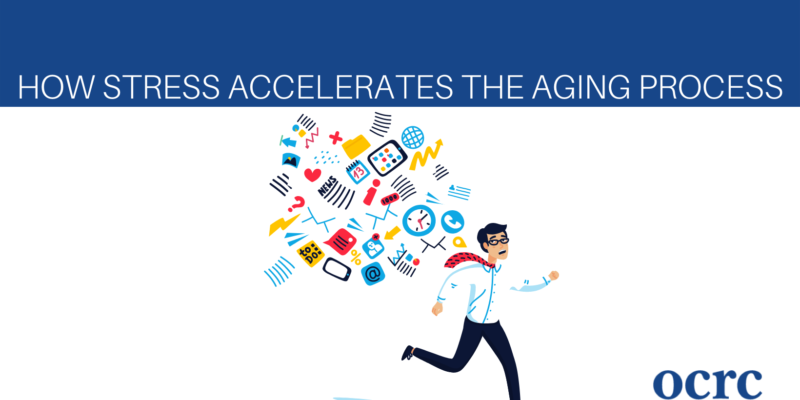
Stress, unfortunately, is an inevitable occurrence during any stage of life. Aging, like stress, is also a natural part of life. While we’re young and resilient, stressful situations may not take as much of a toll on our bodies and minds. As we get older, though, the body’s natural defenses gradually begin to break down, making it more difficult to cope with stress and anxiety.
One could argue that getting older can also be a stressful experience itself: navigating the loss of loved ones, anticipating potential declines in health and independence, and long-term unemployment can all be particularly disorienting.
Fortunately, there are several ways for you (or your elderly loved one) to keep stress levels under control and get the most out of senior living. Read on to learn more about the impact of stress on the aging process, and how to manage stress levels in order to age gracefully.
When we’re physically or emotionally distressed, our bodies release stress hormones such as cortisol and adrenaline. These stress hormones can be helpful for providing short-term energy and focus so we can appropriately deal with the stressful situation at hand.
However, chronic stress over the years can lead to an overload of stress hormones, resulting in harmful imbalances in the body. Excess stress hormones have been linked to heart disease, high blood pressure, weakened immune systems, and memory loss. Additionally, when adrenaline is constantly pumping, the blood vessels can become constricted and lead to hearing and vision loss.
Over time, the brain loses its ability to regulate stress hormone levels. Not only does this contribute to hormonal imbalances, but it also leads to increased stress levels in older adults. An individual who experiences chronic stress is more likely to make unhealthy lifestyle choices, which causes additional health problems. In other words, stress accelerates aging, and aging causes stress—it’s a vicious cycle.
Stress also affects the body on a cellular level. Telomeres, which act as protective “caps” on the end of DNA chromosomes, are bound to break down over time. However, researchers have found that the process may become expedited when the body is under stress. When telomeres become too short, the cells are no longer have protection. Shortened telomeres have been linked to Parkinson’s disease, diabetes, cardiovascular disease, and cancer.
The good news is that reducing stress levels can improve your overall health, vice versa: improving your health can reduce stress levels.
Not sure where to start? Check out some of our top tips for managing stress levels:
Some individuals may also benefit from seeking professional mental help or even prescription medications when it comes to managing chronic stress. It never hurts to talk to your doctor or mental health professional for additional insight on how to improve your health.
